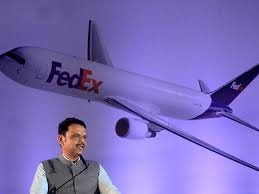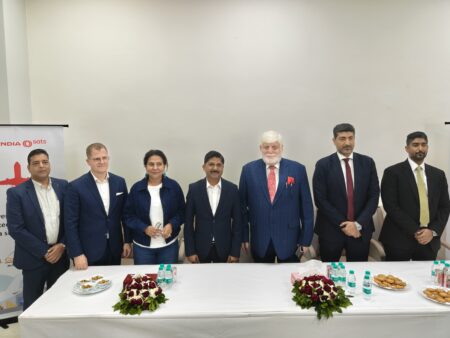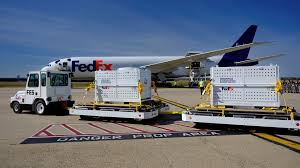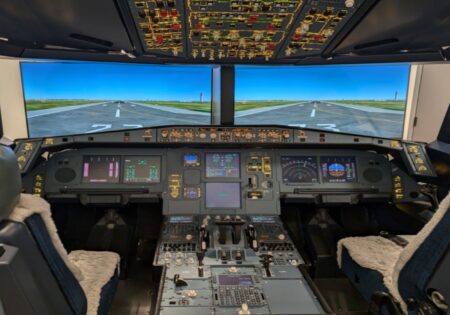In a rapidly evolving air cargo landscape, Arun Chandra, Vice President, Aviation Business, Bangalore International Airport (BIAL), shares transformative insights on technology’s pivotal role in driving efficiency, sustainability, and collaboration across the sector.

The air cargo industry is not merely adapting but thriving in the face of change
The air cargo industry is at the cusp of a technological revolution, and Arun Chandra offers a front-row perspective on how innovation is reshaping the sector. With a future-oriented approach, Chandra outlines the technologies and strategies propelling air cargo into a new era of efficiency and sustainability.
Tech disruptors driving efficiency
The adoption of groundbreaking technologies like Artificial Intelligence (AI), IoT-enabled tracking systems, and blockchain is transforming the air cargo ecosystem. AI enhances route planning and demand forecasting, IoT provides real-time shipment visibility, and blockchain ensures secure, transparent transactions. Together, these innovations optimize operations, reduce costs, and elevate customer satisfaction. As Chandra explains, “Technology is not just a tool but the cornerstone of the air cargo industry’s evolution.”
Sustainability meets operational excellence
Sustainability is no longer optional but essential. The air cargo industry is leveraging predictive analytics and AI to optimize fuel consumption and routing, minimizing emissions without compromising efficiency. Chandra highlights BIAL’s initiatives, including electrifying ground-handling equipment and embracing paperless processes like the e-AWB (Electronic Air Waybill). “Balancing sustainability with operational demands requires innovation and commitment,” he asserts.
Overcoming barriers
The road to digital transformation isn’t without challenges. Legacy systems, siloed data, resistance to change and high implementation costs pose significant hurdles. Chandra emphasizes the importance of industry-wide collaboration to establish digital standards, foster skill development, and invest in scalable, interoperable solutions. Raising awareness about the benefits of digital transformation across the value chain is crucial to overcoming these obstacles.
Collaboration: Key to innovation
For Chandra, the future of air cargo lies in robust partnerships. Platforms like BLR Airport’s CargobyBLR exemplify how cloud-based cargo community systems streamline data sharing and process alignment. He cites India’s first on-airport truck management facility at BLR Cargo as a game-changer, optimizing operations while prioritizing driver welfare. “Shippers, tech providers, and logistics companies must co-develop agile solutions, share data responsibly, and leverage innovation ecosystems to transform the sector,” Chandra states.
Trends on the horizon
Looking ahead, innovations like autonomous drones, sustainable aviation fuels (SAF), and AI-driven logistics are set to redefine the industry. Chandra urges companies to invest in R&D, build adaptive infrastructure, and nurture talent to remain competitive. At BLR Airport, pioneering efforts ensure smarter, greener, and more resilient supply chains.
As Arun Chandra’s insights reveal, the air cargo industry is not merely adapting but thriving in the face of change. With a strong focus on technology, sustainability, and collaboration, the future is brighter than ever for air cargo innovation.











